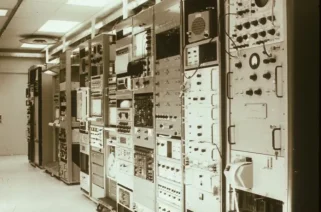Historical and Epistemological Perspectives

Have a look at our team members and collaborations:
About
Successful prediction has been a central goal of the sciences. Furthermore, decisions regarding public policy rely heavily on the ability to predict. In this regard, the role of the sciences is crucial, since scientific knowledge is usually a prerequisite for successful prediction. However, the extraction of predictions from scientific knowledge involves several perils and complications.
For instance, the making of predictions is never a direct deduction from the premises of a scientific theory. Rather, there is a considerable gap between high-level theory and predictions of particular phenomena, a gap that is bridged by modeling, idealizations, and approximations.
This research project aims at improving our understanding of the perils of prediction from the perspective of history and philosophy of science (HPS), while integrating tools and insights from the history and philosophy of computing.
It includes case studies in five areas: seismology, high energy physics, quantum chemistry, environmental science, and classical physics.
Have a look at our workshops and conferences:













Supported by:
Host Institute:
































